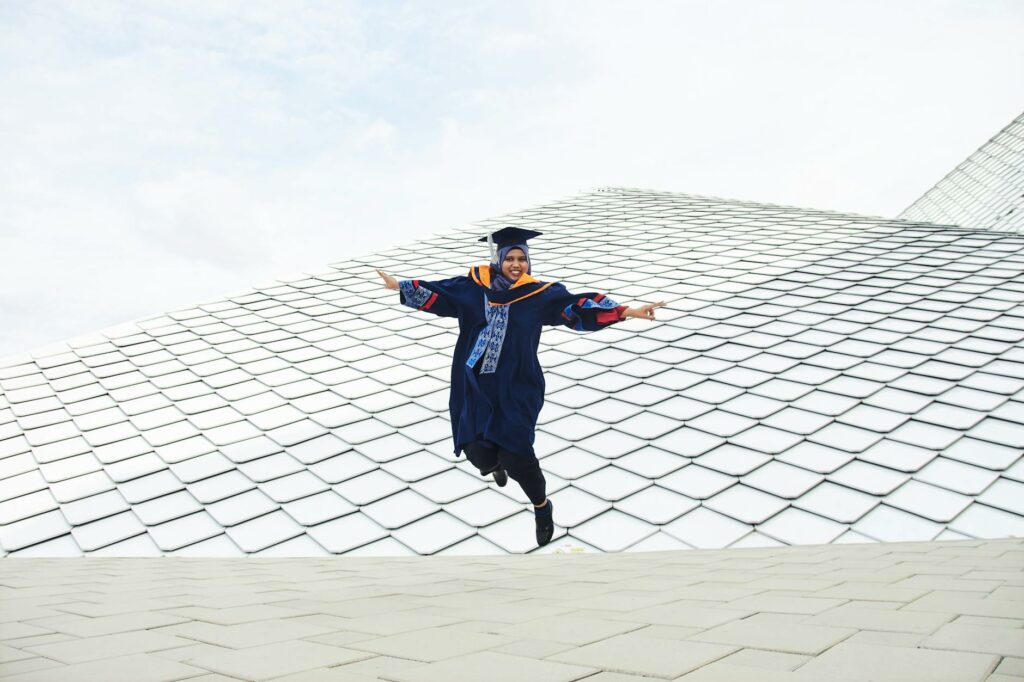The journey to academic success is not solely determined by factors such as intelligence, resources, or opportunities. Your beliefs about yourself play a profound role in shaping your academic destiny. In this article, we will delve into the concept of the self-fulfilling prophecy, how it impacts your academic journey, and provide real-life case studies that highlight the power of beliefs in academic success.
What is Self-fulfilling Prophecy?
The self-fulfilling prophecy is a phenomenon where a person’s beliefs or expectations about a situation influence their actions and ultimately lead to the fulfillment of those beliefs or expectations. In the context of academics, it means that what you believe about your abilities and potential can significantly impact your academic performance.
I tell you, dear parent, this concept of self-fulfilling prophecy has enormous power than we are willing to admit. Believing in a child’s potential despite setbacks can drive a parent to take meaningful steps towards their success. Conversely, if a parent is discouraged, believing in their child’s inevitable failure, minimal effort ensues, potentially perpetuating a self-fulfilling prophecy of poor performance. To prove my point, I will share a concept called “the Pygmalion effect”.
The Pygmalion Effect: One of the most well-known manifestations of the self-fulfilling prophecy in education is the Pygmalion effect. This effect was first described by researchers Robert Rosenthal and Lenore Jacobson in the 1960s. They conducted an experiment in which teachers were told that certain students in their class had been identified as “academic bloomers” who were expected to excel academically in the coming year.

In reality, these students were chosen at random, with no evidence of superior intelligence or ability. However, because the teachers believed in the potential of these students, they unknowingly provided them with more attention, encouragement, and opportunities for learning. As a result, these students did, in fact, show significant academic improvement compared to their peers.
This classic experiment illustrates how the expectations and beliefs of authority figures, such as teachers, can influence students’ academic performance.
Also Check out an article about: How an Abundance Mindset Enhances Learning and Retention
The Impact of Our Beliefs on Academic Success
Now that we understand the concept of self-fulfilling prophecy, let’s explore how self-belief can shape your academic destiny.
Beliefs and Motivation
Your beliefs about your own capabilities can significantly impact your motivation to learn. When you believe in your ability to succeed academically, you are more likely to set ambitious goals, persist through challenges, and stay motivated even when faced with setbacks. Conversely, a lack of self-belief can lead to procrastination, self-doubt, and a diminished desire to excel. In my long life as an educator, I have come across a lot of different students and I will share case studies of real individuals either known to me personally or from my interactions with different educators. These individuals have overcome failure due to a change in their mentality.
Case Study: Clara’s Transformation: Clara was a college student who struggled with self-doubt and low self-esteem. She believed that she was not as smart as her classmates and that she would never excel academically. However, after attending a motivational seminar and receiving mentorship from a supportive professor, Clara’s self-belief began to shift. She started setting higher academic goals and was motivated to work harder. Over time, Clara’s improved self-belief led to significant academic success, including earning a scholarship for her outstanding performance.
Effort: Your Beliefs Influence How Hard You Work
Your beliefs also influence the amount of effort you put into your studies. If you believe that your efforts will lead to success, you are more likely to dedicate time and energy to your academic pursuits. On the other hand, if you doubt your abilities, you may be reluctant to invest the necessary effort, leading to underperformance.
Case Study: James’s Journey: James was a high school student with a passion for mathematics, but he struggled with self-doubt. He believed that he was not “naturally” good at math and often compared himself to classmates who seemed to excel effortlessly. However, after seeking help from a math tutor who emphasized the importance of effort and growth, James’s self-belief began to change. He started practicing regularly, seeking help when needed, and his grades improved significantly. James realized that his effort could bridge the gap between his beliefs and academic success.
Resilience is Influenced By What We believe
An academic journey like any other is not always smooth; setbacks and challenges are part of the process. Your self-belief plays a crucial role in how you respond to these obstacles. Those with a strong belief in their abilities tend to view setbacks as temporary and surmountable. In contrast, individuals with low self-belief may see setbacks as proof of their inadequacy and may give up more easily.
Case Study: Sarah’s Triumph: Sarah, a graduate student pursuing a challenging research project, faced multiple setbacks and experiments that did not yield the expected results. Initially, she questioned her ability to succeed in her research. However, with the support of her mentor, a change in her self-talk, and continuous encouragement and support from her mother, Sarah started viewing setbacks as opportunities for growth. She persisted in her research, learned from her mistakes, and eventually made groundbreaking discoveries in her field. Her self-belief in her ability to overcome challenges played a pivotal role in her success.
Cultivating Self-Belief for Academic Success
Now that we’ve seen how self-belief can shape academic destiny, let’s explore strategies to cultivate and strengthen this essential mindset.
Self-Reflection
Start by examining your current beliefs about your academic abilities. Are there self-limiting beliefs or negative self-talk that you need to address? Identify areas where you doubt yourself and make a conscious effort to challenge and reframe those beliefs.
Case Study: Mark’s Transformation: Mark, a high school student, always believed that he was not a “math person” and struggled with mathematics courses. However, with the guidance of a supportive teacher, Mark began to reflect on his beliefs. He realized that his self-doubt was rooted in a single challenging math class he had taken years ago. By reframing his beliefs and seeking additional support, Mark improved his math skills and gained confidence.
Set Realistic Goals
Set achievable academic goals that challenge you but are within your reach. As you achieve these goals, self-belief will naturally grow. Each accomplishment reinforces the idea that you are capable of success.
Case Study: Maria’s milestones: Maria, a college student, set a series of realistic goals for herself, such as improving her essay writing skills and achieving a certain GPA. As she accomplished these milestones, her self-belief grew stronger. She realized that she could set her sights on more significant academic achievements, and over time, she exceeded her own expectations.
Seek Support and Mentorship
Surround yourself with mentors, teachers, or peers who believe in your potential and provide encouragement and guidance. Their support can be a powerful catalyst for strengthening your self-belief.
Case Study: David’s Guidance: David, an aspiring scientist, sought mentorship from a respected professor in his field. The professor’s unwavering belief in David’s abilities and consistent encouragement motivated David to pursue advanced research projects. With the guidance and support of his mentor, David published groundbreaking research papers and earned recognition for his contributions to the field.
Embrace Failure as a Learning Opportunity
Change your mindset on failure. Instead of seeing it as a reflection of your inadequacy, view it as a valuable learning opportunity. Analyze what went wrong, make necessary adjustments, and approach the next challenge with renewed determination.
Case Study: Emily’s Resilience: Emily, a medical student, faced a challenging anatomy exam and received a lower grade than expected. Initially, she felt discouraged and questioned her abilities. However, she decided to meet with her professor to review her mistakes and learn from them. Emily’s resilience and commitment to improvement eventually led to her excelling in her subsequent exams and earning her degree.
Conclusion
The self-fulfilling prophecy underscores the profound impact of self-belief on academic success. Your beliefs about your abilities and potential can shape your motivation, effort, and resilience, ultimately influencing your academic destiny. The case studies presented in this blog post demonstrate that individuals can transform their academic journeys by cultivating a positive self-belief mindset.
When authority figures like parents, teachers, or mentors believe in a child, it drives their actions in a positive way, hence contributing positively to their success.
Remember that changing your self-belief is an ongoing process that requires self-awareness, reflection, and persistence. As you embark on this journey, you have the power to shape your academic destiny positively. By believing in your abilities, you can overcome loads of challenges, achieve your goals, and unlock your full academic potential. Your beliefs can indeed become the driving force behind your academic success, making self-fulfilling prophecy a powerful ally in your educational journey.
Share via:




